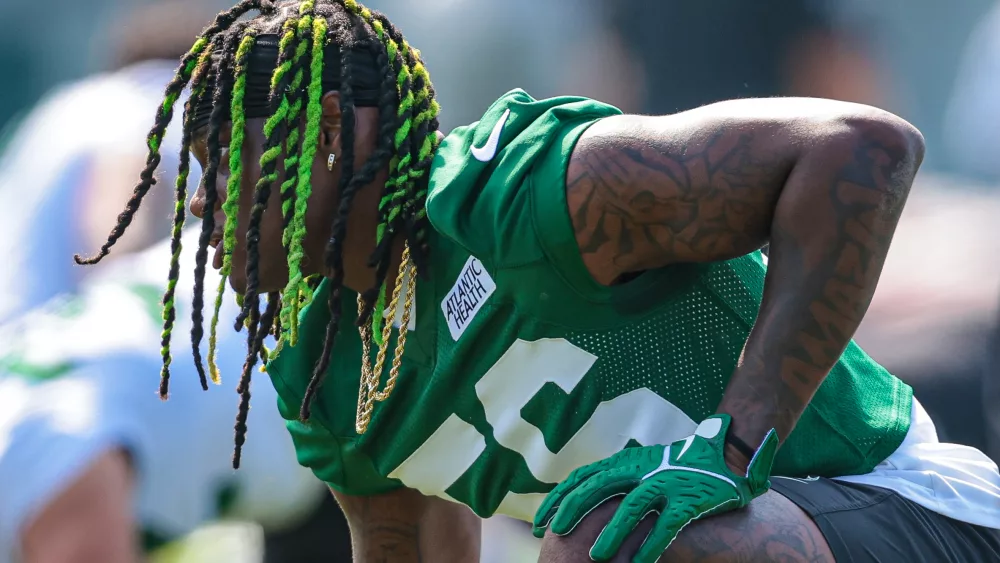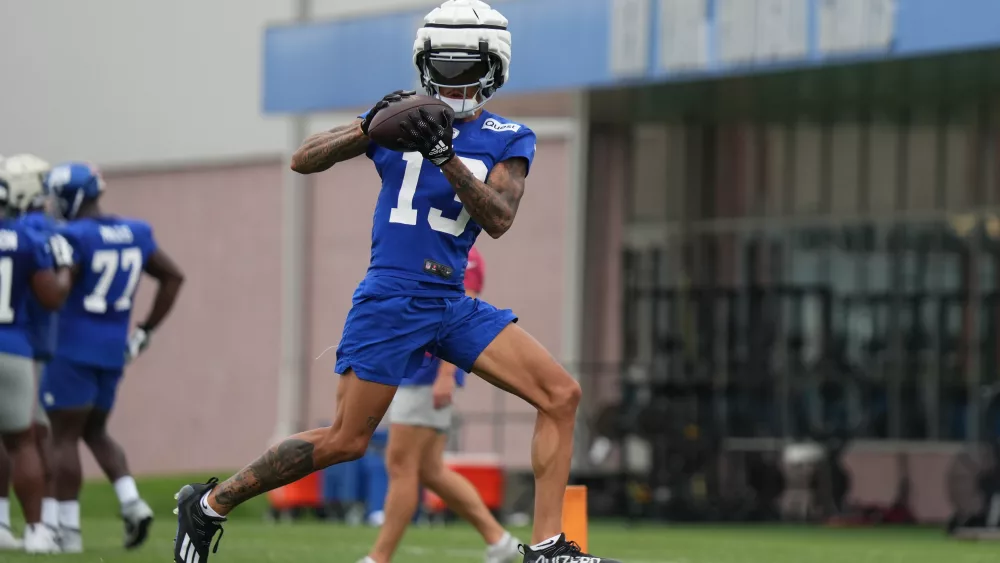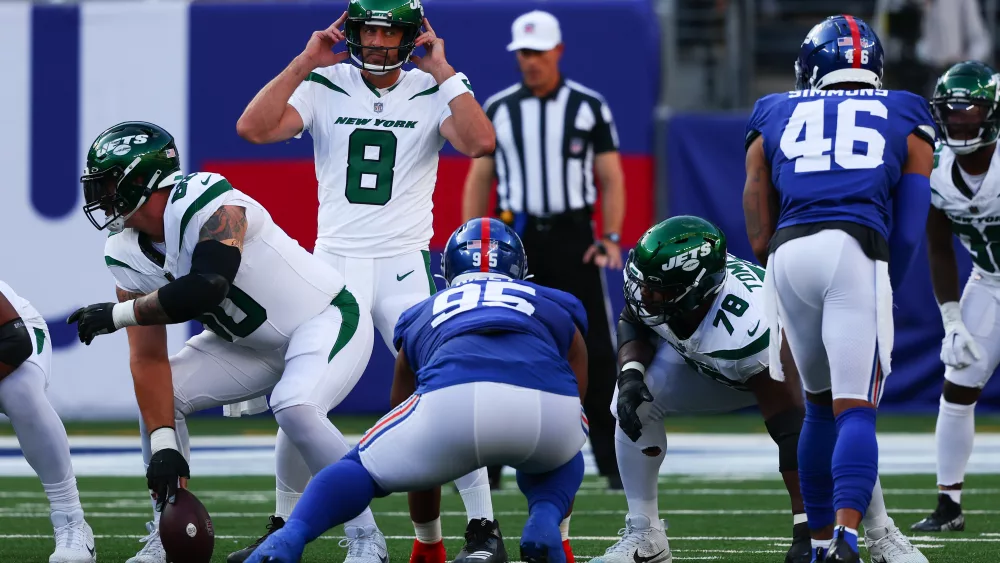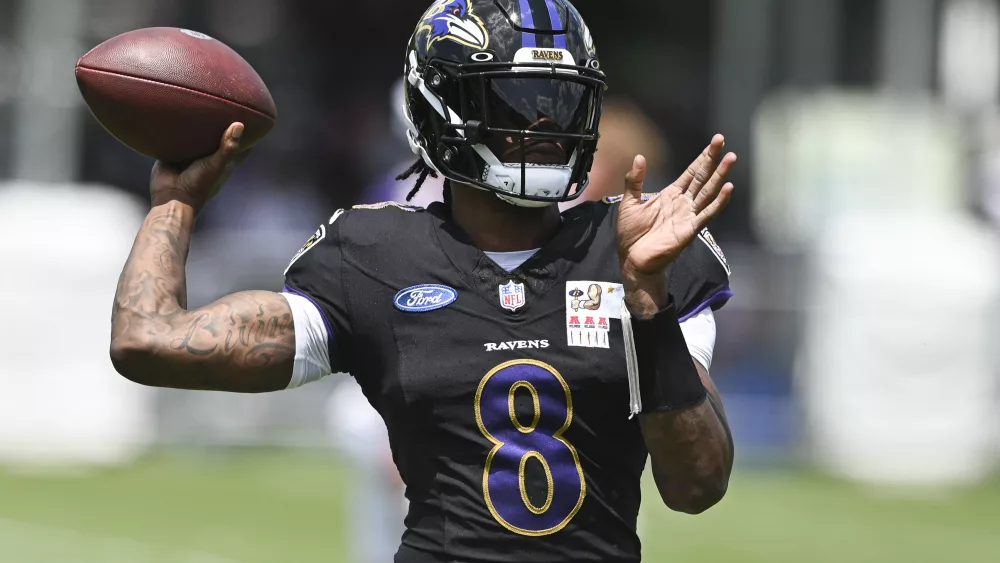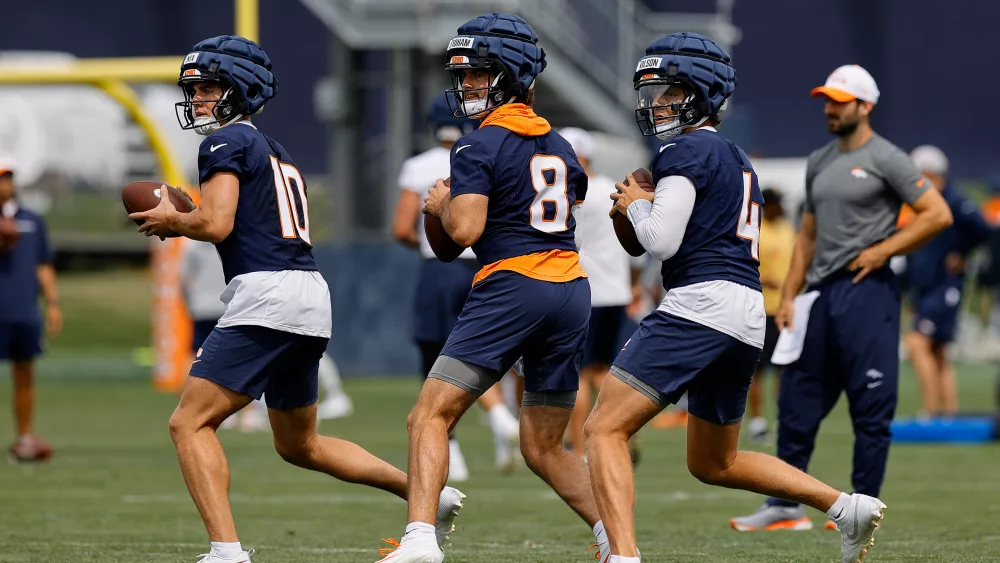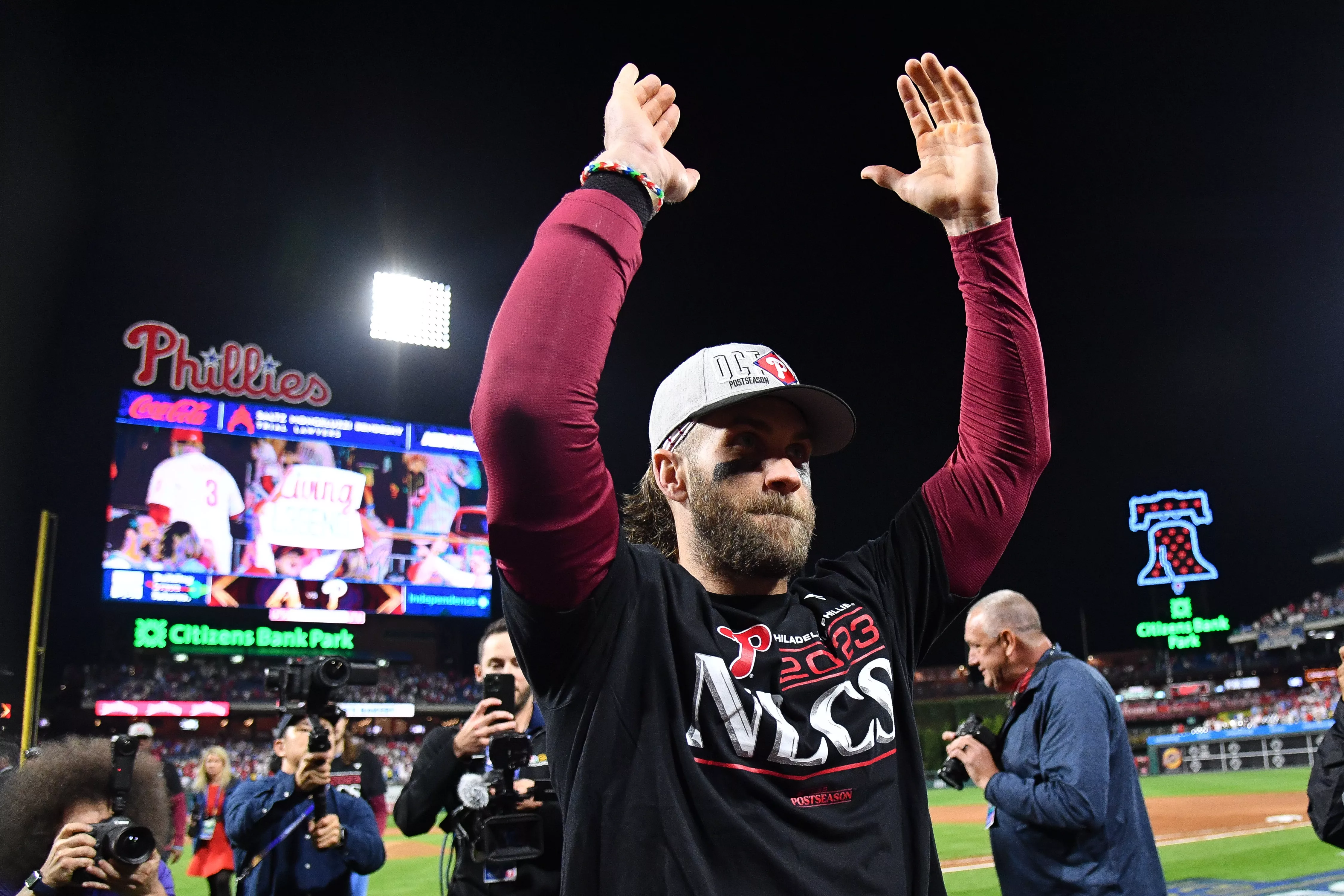
Oct 12, 2023; Philadelphia, Pennsylvania, USA; Philadelphia Phillies first baseman Bryce Harper (3) celebrates the series victory against the Atlanta Braves following game four of the NLDS for the 2023 MLB playoffs at Citizens Bank Park. Mandatory Credit: Eric Hartline-USA TODAY Sports
MLB: NLDS-Atlanta Braves at Philadelphia Phillies
(New York, NY) – The NL East champion Atlanta Braves have been bounced from the playoffs by the Philadelphia Phillies, the defending NL Pennant winner.
On paper, there’s nothing wrong with that. Two division rivals went head-to-head in the postseason, and one team came out on top. But the way the series unfolded, and some of the drama behind the scenes, suggest MLB has some work to do.
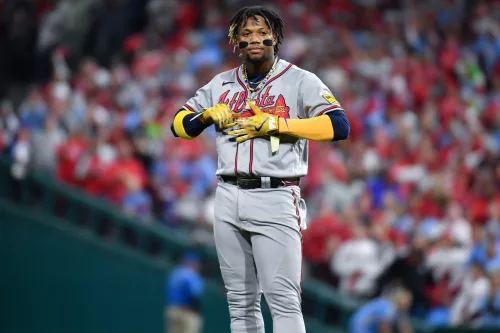
First and foremost, the MLB playoff format is flawed. When the Wild Card was first introduced in 1995, fans quickly realized there wasn’t much downside to “getting into the dance” as a non-division champ – The 1997 and 2003 Florida Marlins, 2002 Anaheim Angels, 2004 Boston Red Sox, and 2011 St. Louis Cardinals all won the World Series as WC winners. That mean inside 15 years, a Wild Card qualifier won the World Series around 30% of the time. Plainly stated, winning the division guaranteed “home field advantage” when going up against a WC winner – hardly much of an upside in baseball.
So, in an effort to change that, MLB switched to a one-game playoff format in 2011, relegating the “wild card” to a single game series in both the NL and AL. Fans complained about that too, because they said it’s beyond silly to play 162 regular season games and then decide who moves on with a single contest. That led to the current iteration, in which three Wild Card teams from each league play the lowest ranked division winner – in a three-game series.
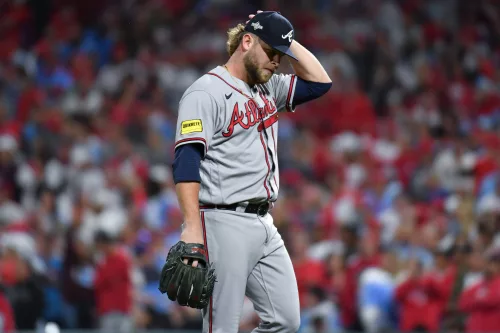
What’s the issue then, now? Well, it’s still a bad system. Winning the division ought to be treated as a significant accomplishment, one that certainly shouldn’t put you at a disadvantage in the playoffs. Yet that’s exactly what happens under the current format – the Wild Card winners and third division winner continue to play as a baseball player normally would – everyday, staying in rhythm, keeping their timing and routine.
Meanwhile, the top two division winners sit around and wait for a week to keep playing – losing their timing, breaking their routine, and messing with their rhythm. The better approach? Immediately moving to a seven-game series for the NLDS, doing away with the wild card round. For the Wild Card winner, all of those games will be played on the road. That’s admittedly not much of a disadvantage, but it certainly is financially for the WC club – and more importantly it doesn’t dilute a long baseball season into a three-game set. It also means the division winner isn’t sitting around, getting cold.
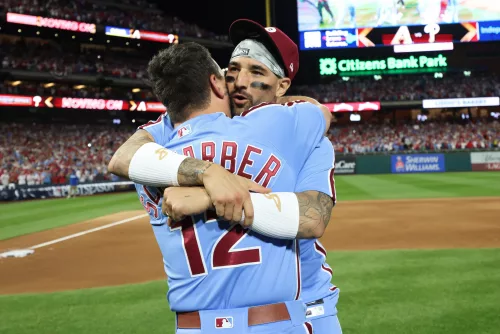
The other problematic aspect of MLB (and really sports media in general) exposed by the Phils-Braves NLDS has nothing to do with on-the-field action. After game 2, when Bryce Harper was doubled-off to end it, a reporter overheard Braves shortstop Orlando Arcia yelling “attaboy Harper” and mocking the slugging outfielder. Somehow, that made its way back to Harper and Philadelphia. Then, when Harper went deep twice during a game 3 win at Citizens Bank Park, Harper dramatically stared down Arcia during each home run trot. The drama and intrigue may be good for baseball in some ways, but in others it’s a bad look.
The clubhouse, or locker room, is supposed to be a sanctuary for baseball players. If the field is their “stage,” then the locker room is their green room. Reporters are granted access to the clubhouse at certain times, and under certain circumstances. There’s a certain level of trust and relationship building inherent in the process, as players and members of the media eventually come to view each other as sort of colleagues. But that’s a largely quaint idea in the world of modern media. Everything is driven by the 24/7 news cycle, the need to go “viral” and “get clicks,” while building relationships with players is somewhat secondary. That might not be true for “beat reporters” who travel with the club and stay with the players all year, but during the playoffs there’s plenty of national media coverage that normally stays away.
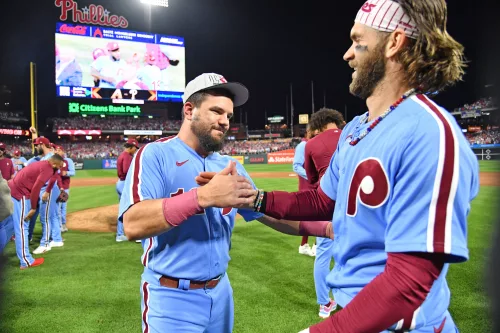
Perhaps, then, the clubhouse should be closed for playoff games. Regular season coverage is almost always 100% local media, who would be more incentivized to “protect” those relationships. Or players need to be more protective of what they say and how they say it within the locker room.
A better approach is likely to accept that media has changed, and the world of content is fractured. The need to get that “postgame” quote from a player for a “gamer” write up is outdated and pointless. Players know to give canned, safe responses to games during scrums with reporters. Fans will survive without hearing players say they’ve “just got to keep working,” “focus on ways to get better,” “find their pitch,” “come together as a team,” “focus on the fundamentals,” etc. etc. But fans would appreciate long form interviews with players – perhaps as conducted on a random Wednesday in a sit down with a reporter. Those should be cultivated, and pursued, and developed. Locker room access is not a necessary and is a holdover from a bygone era.
And so, the Phillies move on and return to the NLCS. The Braves go home. MLB has some things to think about from a media and playoff format perspective.


